Bertina Lopes – 100 Years of Irreverence and Nonconformity
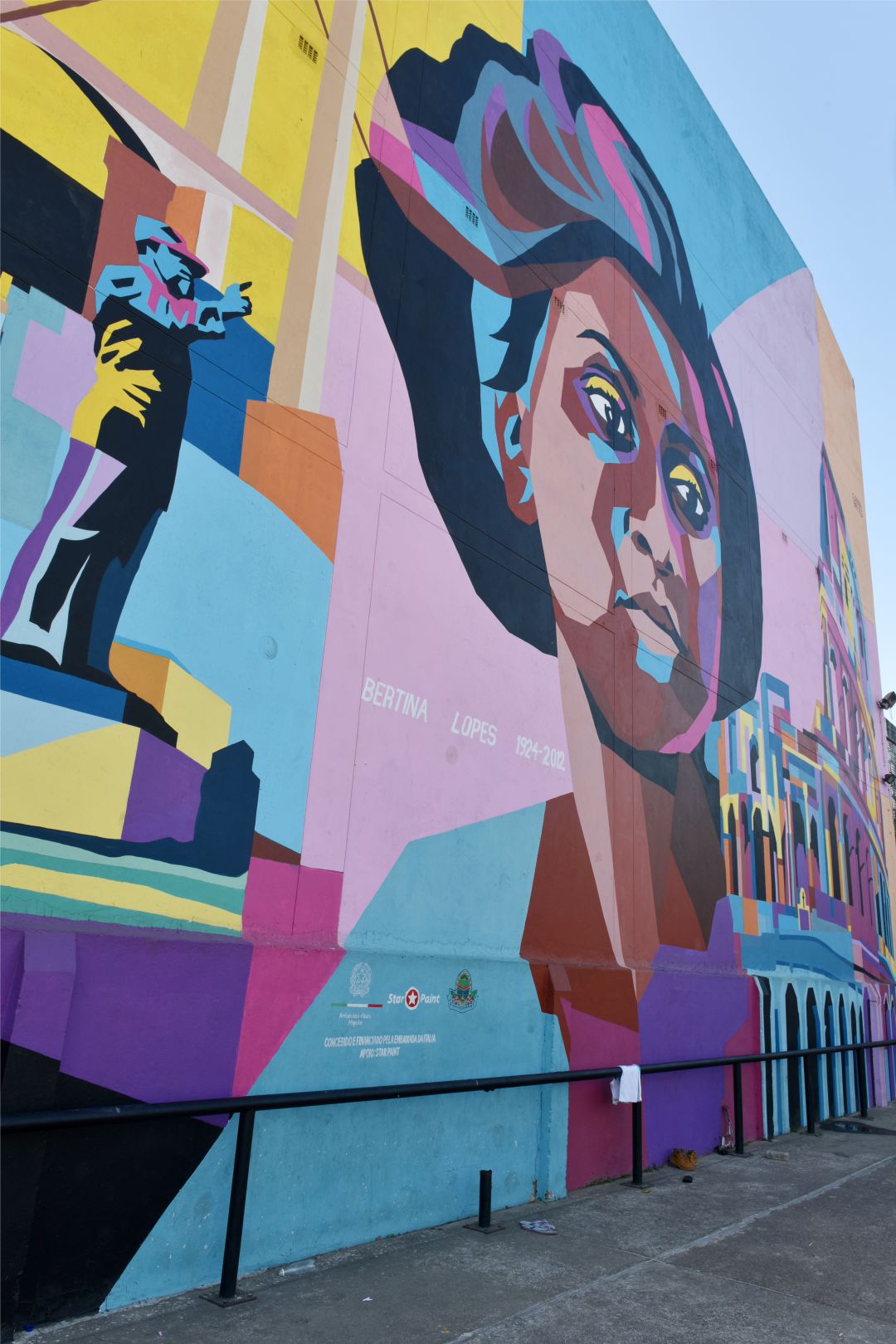
Bertina Lopes’ career intertwines art and political activism. Somehow by the hand, inspired by chance or not, it doesn’t matter, of her first husband, the poet Virgílio de Lemos, another nonconformist against the colonial-fascist regime, with whom she had friction and some fights.
Advertising
A lot of information can be found on the internet, images, texts and some articles. It’s really interesting to follow in the artistic footsteps and life journey of this lady, known to her friends and comrades as Mama B.
What interests me personally about Bertina, this half-mixed character by birth, culture and experience?
Art scholars describe her as modernist, with a Western influence, urban art and South American graffiti artists, but strongly influenced by the poetry of José Craveirinha and Noémia de Sousa, who became involved in denouncing aspects of colonial-fascist rule, elevating her art to a level of intervention.
Without being a fan of Picasso, whom she is said to have met in the city of light, Paris, she dedicated part of her painting to him, focusing on denouncing political repression in Spain. In this context, Bertina’s work is also strongly influenced by the political events in Mozambique, according to some sources “by what followed the independence of Mozambique”.
Here the subject begins to get interesting: it is her Bertina Lopes who reveals a critical attitude above what is conventional in national culture, of ratification of the post-independence political model, when many ratified the new status quo, others exalted it, Bertina Lopes somehow contests it. She immigrates. She decides to stay in Europe.
In a way.
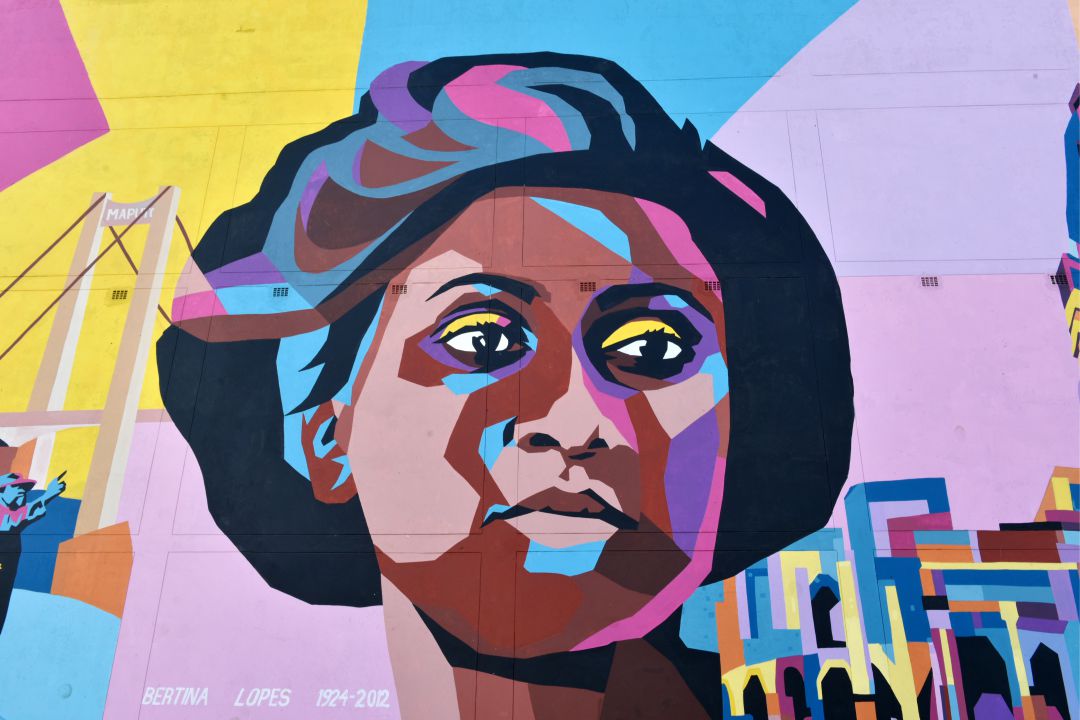
Bertina Lopes lives in Portugal and then in Rome in a kind of “citizenship exile”, a person who has fought, with her brush, palette, chisel, stakes and ideas, to form a citizenship that is a outcast from the loud ideological mob that within the country agrees with, covers up or instigates the excesses that are committed against and in the name of a people that it was intended to liberate.In this condition, wandering or on purpose, Bertina goes to Rome and settles down in second marriages (1964) with an Italian, art admirer and employee of the Social Security Institute, Franco Confaloni. The cultural, physical and geographical distance doesn’t keep her away from Mozambique, which she lives and feels in the attic of her house at 98 Via XX Settembre, in the center of Rome, between Piazza Esedra and Piazza Barberini, where she paints, writes, sculpts, cooks and eats a ma’thápa with crab whenever she can. Laurentina that she was, she loved a good local dish. A mixture of recipes, both traditional on her paternal and maternal sides.
In her paintings she exclaims the melancholy of a country that has waited so long and has not seen, perhaps hoped to see arrive. What has arrived doesn’t seem to have pleased her. She does not despair, nor is she discouraged by her own search and the search for a country that belongs to everyone. Equal, free and full of ideas and hands to do it.
The walls of her house reflect the graffitied ideas of many people. Anonymous, extremist revolutionaries some, orthodox others, not a few simple passengers in a gallery-island, but all moderate, far from the scepter of power and extremely humanist in the pretense of the company of a lady of the arts. They treat her with affection, but forget her as soon as they cross the threshold of her door; they omit her completely when they reach the circles of power in which they speak, ideologically uniformed in a policy of popular ecstasy.
In an interview with Revista Tempo, she cried to the journalist: “I feel nostalgic for my homeland”. Bertina used to say when talking about her departure from Mozambique: “My sister Custódia was a member of the Parliament, and I was deported”. Countries are only free when minds are free, people are free when they can talk about that freedom and have the freedom to think.
In the attics of number 98 Via XX Settembre in Rome, Bertina continues her search for the country for which she cried, fought and died, most probably without seeing freedom as she dreamed or painted it. There is nostalgia, artistic exile, sighs and complaints.
Samate Mulungo says of this exile: “She never left her country. She lived in Italy but she was in Mozambique,” you can tell by the pained, red and gray features. The country and its problems hurt her. She had too much courage to go out and shout away from those who were applauding, perhaps or, who knows, shout for them? Rui Balthazar remembers her as having an “unbridled love of freedom” and this somehow reveals the pain of this exile after independence and sentences Bertina to an “eternal art because it is true”
Quoting the title of the exhibition organized last year at the Museo delle Civiltà in Rome, “Bertina Lopes. Via XX Settembre 98. La casa come luogo di resistenza” (the house as a place of resistance), today we are witnessing the erasure of the resistance of an anti-fascist revolutionary and a deportee of freedom. And the lime is killing the history and sincere or gray dedications of those who passed through and repeated them. Politicians, aviators, bohemians, writers, artists, musicians, bureaucrats, students and onlookers left their impressions in the languages of Babel on these now extinct walls.
The writings and graffiti on the thick walls of the stolen waters that were the last frontiers of the republic of an indomitable soul, who painted freedom, disfigured oppression, sculpted love, dreams and poetry are being erased and with it history, under the canonical dictates of a court order with the distant complicity disguised in deliberate bureaucratic and vindictive inertia, thinking to bury in oblivion a soul that always lived free, irreverent, indomitable and non-conformist, in short a star of the good signs of freedom: “I’m too white to be black and too black to be white”.
Edição 84 SET/OUT| Download.






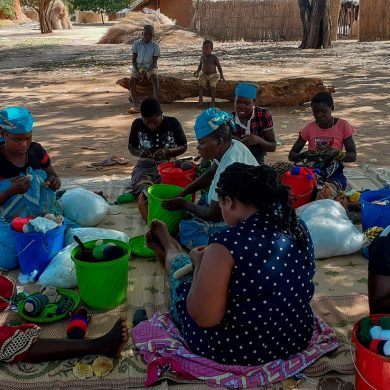
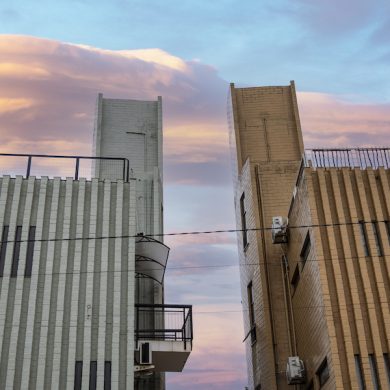



















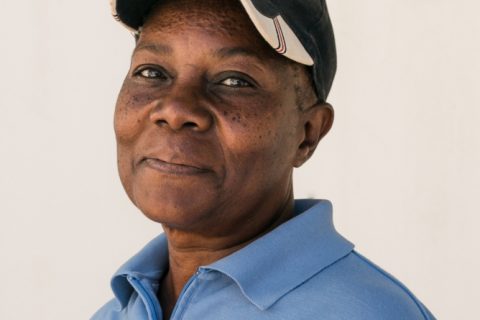
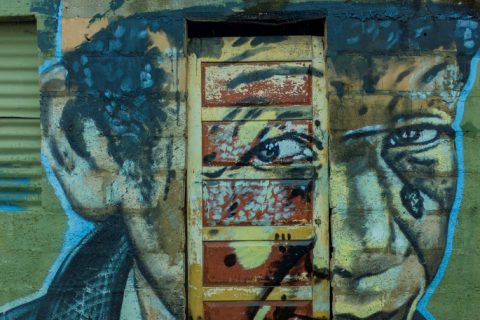






0 Comments